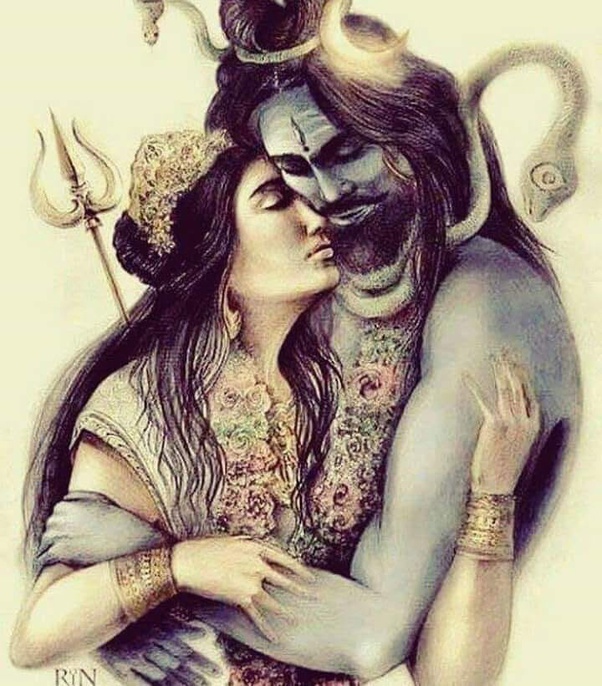I think not. Let me share a story about Lord Shiva.
Sometimes it’s said that King Daksha, one of the sons of Brahma, entertained his hatred of Lord Shiva because the Lord cut off one of Brahma’s heads once upon a time when Brahma became full of pride and jealous of Lord Shiva’s ultimate station in the universe. Never mind that the head of a God can grow back. And never mind that the story is surely a metaphor for some deep yogic wisdom. Personally, I think Daksha was just a prejudiced and biased old coot with a mind twisted by his life of royalty.
You see, Daksha, like any father, wanted the very best for his daughter when it came time for her to marry. And fortunately or unfortunately for him, his daughter, Sati, just happened to be in love with Lord Shiva and the two had decided together to be married. Problem is, our Lord was a recluse and Daksha didn’t know much about Him. And what he did know, he didn’t like. After all, he’d heard that this guy, Shiva, grew long, dread-locked hair, walked around mostly naked and let snakes hang on his limbs. He liked to dance in graveyards and entertained with ghosts and goblins. Daksha even heard once that Shiva had taken to smearing ash all over His body! What kind of monster does that?
Actually Daksha didn’t know much about Him at all. He didn’t even really know His name since anyone he asked always gave a different answer. One character would call Him Rudra while another would say Pashupathi. This fellow had no lineage at all. No credentials. Who were His parents? Where did He come from? All Daksha knew was that this rapscallion had captured his daughter’s heart somehow and he’d see them married over his dead body. How could he let his daughter marry a man who had no name, no family, no fortune or even any clothes? Shiva was unknowable, unthinkable. He couldn’t be seen or judged or weighed for his worth in gold. No. Daksha absolutely forbade Sati to go through with the wedding.
Well, obviously Sati was beside Herself when Her Betrothed arrived at the palace on Her wedding day wearing his finest leopard-skin kilt, bangled with rudraksha seeds and trailed by a cow, only to be roundly rebuked by Her father. “Scoundrel! Rascal! You who are nothing and think you are everything that you can walk into this palace and expect to have my daughter as your bride! I forbid it!” Daksha swore his wrath at the quiescent groom standing before him for his blessing.
Sati was livid and embarrassed and ashamed. Her own father could not see the Lord, did not know Him, could not even fathom an inch of Him. There was nothing in his imagination to give him any idea of the greatness and glory and beauty that stood before him. He was utterly blind and in his ignorance had insulted both of them beyond Her ability to bear. And so she swore an oath at her father and threw herself into the sacrificial fires, immediately dying there and then. (Of course She would reincarnate as Parvati, many, many stories later.)

But all of this by way of saying, neither Brahma nor His sons, neither Vishnu nor any of the Gods of the Pantheon have ever been able to trace the beginning or end of Lord Shiva. The Lord has never been able to be rolled into any one particular idea for anybody to be able to understand with any degree of precision, and as every life has issued forth from this Progenitor of Life itself, and every life owes its life to the same, none is able to judge, though many still try, and will always, always, be found on the wrong side of history when they do.
And so I would say to you wear your t-shirt in honor of that magnificent Lord. He is a magnificent, benevolent Lord. The Creator, Preserver and Destroyer of us all and not one among us really has anything at all to say about that.
Jai Shankar
Jai Maa
Om Namah Shivaya
EDIT: It was brought to my attention that I had a crucial detail of the story wrong. In fact, Sati and Shiva did get married and it was at a subsequent ritual sacrifice held by the King that Sati self-immolated due to said embarrassment and shame at a different, but similar affront by her father. Those missing details can be found here: Daksha yajna – Wikipedia

…is a Saiva Tantrika, Gyana Yogi and founder of Uma Maheshwara Yoga & Ayurveda. David has an MA in Semiotics, lives in Japan with his family and works as a coach in L & D, devoting his time to developing science-based tools and programs that help people reach the fullest potential of the human condition.
Discover more from REAL YOGA
Subscribe to get the latest posts sent to your email.


